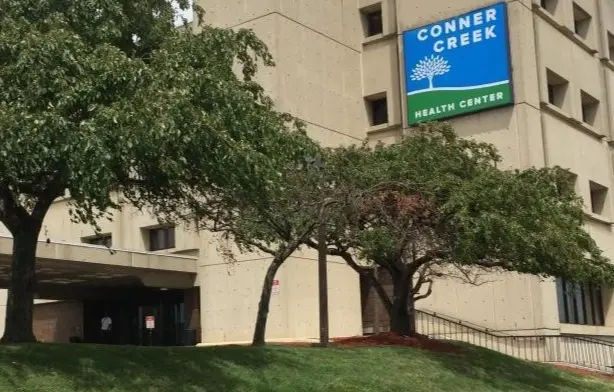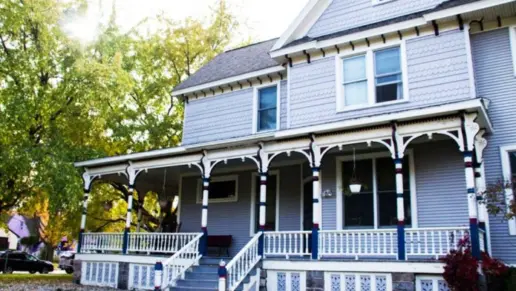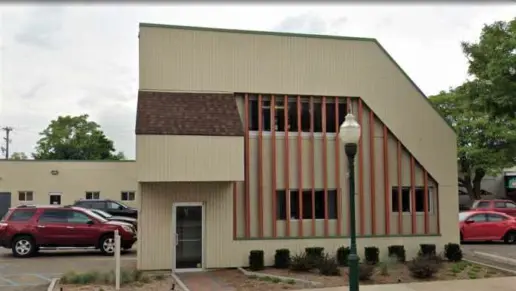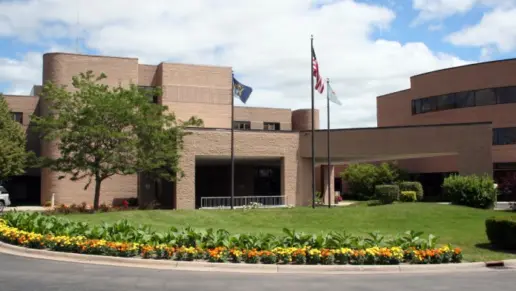About Conner Creek Health Center
Conner Creek Life Solutions is an inpatient drug and alcohol detox and rehab for adults in Detroit, Michigan. They offer intensive residential treatment and aftercare services, including dedicated programs for clients with co-occurring mental health disorders. Their primary treatment modalities include individual, group, and family counseling.
Conner Creek Life Solutions, in Detroit, Michigan, is an inpatient addiction recovery center for adults. They offer medically supervised detox, mental health and medical assessments and personalized treatment planning, intensive residential care, and aftercare support. Primary treatment modalities include individual, group, and family counseling.
Conner Creek’s highly trained clinical staff provides medically supervised detox for clients withdrawing from drugs and alcohol. They are licensed to prescribe FDA approved medications as needed to ease withdrawal symptoms and prevent potentially life threatening medical complications.
Conner Creek’s private, home like treatment center allows clients to focus solely on their recovery, safe from the distractions of the outside world. The residential program is designed to support clients in early recovery or those at heightened risk for relapse. The treatment center offers comfortable surroundings and choice amenities, including chef prepared meals, private bathrooms, and inviting common areas.
While in inpatient care, clients receive mental health and medical assessments and customized treatment plans to support whole person health and long term recovery. Residents attend multiple counseling sessions daily, including individual, group, and family therapy. They also participate in addiction education and recovery focused life skills programs, including courses in stress and anger management, communication, coping, self care, problem solving, and relapse prevention.
Because a significant proportion of persons experiencing substance dependency will also be diagnosed with a co-occurring mental health disorder, Conner Creek provides a full complement of psychiatric services led by trained and accredited mental health professionals. This includes assessments, treatment planning, psychotherapy, and medication induction and management.
The aftercare services available at Conner Creek are intended to support sustained sobriety as clients step down from immersive inpatient care. This includes aftercare planning and transitional support for those moving into sober living or outpatient programs.
Conner Creek Life Solutions is state licensed and accredited by CARF. They accept private insurance, self pay, and Medicare.
Latest Reviews
Rehab Score
Location
Location
Other Forms of Payment
Private insurance refers to any kind of healthcare coverage that isn't from the state or federal government. This includes individual and family plans offered by an employer or purchased from the Insurance Marketplace. Every plan will have different requirements and out of pocket costs so be sure to get the full details before you start treatment.
Self-pay involves paying for treatment out of your own pocket. You can use savings or credit, get a personal loan, or receive help from family and friends to fund your treatment. If you don't have insurance or your insurance plan doesn't cover a specific program, self-pay can help ensure you still get the care you need.
Financial aid can take many forms. Centers may have grants or scholarships available to clients who meet eligibility requirements. Programs that receive SAMHSA grants may have financial aid available for those who need treatment as well. Grants and scholarships can help you pai for treatment without having to repay.
Medicare is a federal program that provides health insurance for those 65 and older. It also serves people under 65 with chronic and disabling health challenges. To use Medicare for addiction treatment you need to find a program that accepts Medicare and is in network with your plan. Out of pocket costs and preauthorization requirements vary, so always check with your provider.
Medicaid is a state based program that helps lower-income individuals and families pay for healthcare. Medicaid covers addiction treatment so those enrolled can use their coverage to pay for rehab. When a program accepts Medicaid the client often pays very little or nothing out of their own pocket.
Addiction Treatments
Levels of Care
Treatments
Substance rehabs focus on helping individuals recover from substance abuse, including alcohol and drug addiction (both illegal and prescription drugs). They often include the opportunity to engage in both individual as well as group therapy.
Programs




Clinical Services
Cognitive behavioral therapy in Michigan helps participants view challenges more clearly so they can respond to them in healthy ways. During a limited number of structured sessions, clients learn about and practice these changes to effectively address substance use and mental health disorders.
Group therapy is any therapeutic work that happens in a group (not one-on-one). There are a number of different group therapy modalities, including support groups, experiential therapy, psycho-education, and more. Group therapy involves treatment as well as processing interaction between group members.
Personalized therapy sessions for drug addiction emphasize understanding your background and behavioral triggers for substance use. Your therapist will collaborate with you to create an effective coping strategy and address underlying issues that clear the way for lasting change.
During motivational interviewing, therapists express empathy, support self efficacy, and develop discrepancies. By using these techniques, therapists help clients reflect on their desires for change and understand why and how they should move forward with those changes.
During trauma therapy in Michigan, you are guided through traumatic memories within a safe and supportive environment. Your therapist then provides you with tools to process traumatic events and reduce the symptoms that occur when you're exposed to a trigger. This improves your overall mental health and ability to function in the community.
Both internal and external factors can put stress on a relationship. Couples therapy helps you and your partner work through those stressors and find healthy ways to deal with challenges as they arise.
Family therapy is often recommended for family units with a member undergoing drug or alcohol rehabilitation. Family therapy helps to foster communication and conflict resolution that creates a supportive environment. This helps the loved one who is struggling with addiction.
Quitting smoking is tough without the proper support. A good quit plan often includes nicotine replacement therapy. These products allow your body to adjust to a lack of nicotine, so you experience fewer cravings and less intense withdrawal symptoms.
Accreditations

The Commission on Accreditation of Rehabilitation Facilities (CARF) is a non-profit organization that specifically accredits rehab organizations. Founded in 1966, CARF's, mission is to help service providers like rehab facilities maintain high standards of care.
CARF Accreditation: Yes

State Licenses are permits issued by government agencies that allow rehab organizations to conduct business legally within a certain geographical area. Typically, the kind of program a rehab facility offers, along with its physical location, determines which licenses are required to operate legally.
State License: Michigan
License Number: SA0823265
Contact Information
4777 Outer Dr E
Detroit, MI 48234



